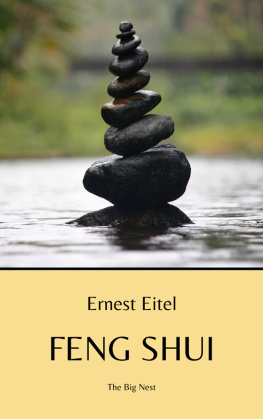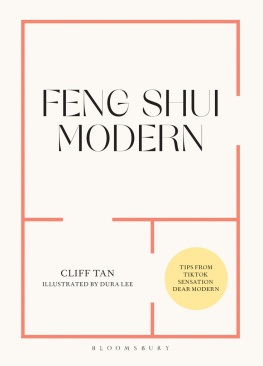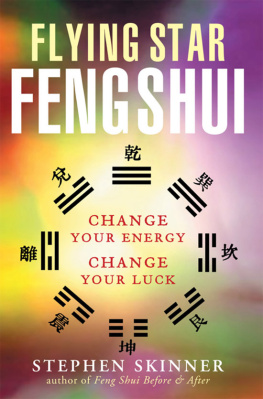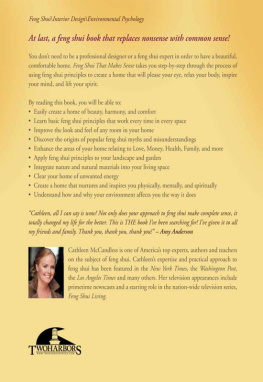Feng Shui
for You
Suzanne Harper
Feng Shui For You
Ancient Wisdom For Modern Living
www.greatestguides.com
Copyright by Greatest Guides Limited 2012. All rights reserved. No part of this publication may be reproduced, stored in a retrieval system, or transmitted in any form or by any means, electronic, mechanical, photocopying, recording or otherwise, without prior written permission from the publisher, except for the inclusion of brief quotation in a review.
The right of the author to be identified for this work has been asserted in accordance with the Copyright, Designs, and Patents Act 1988.
This Edition distributed by Smashwords
Every effort has been made to ensure that this ebook contains accurate and current information. However, neither the author nor the publisher shall be liable for any loss or damage suffered by readers as a result of any information contained herein.
All trademarks are acknowledged as belonging to their respective companies.
This ebook is licensed for your personal use only. It may not be re-sold or given away to other people. If you would like to share this ebook with another person, please purchase an additional copy for each person you share it with. If youre reading this ebook and did not purchase it, or it was not purchased for your use only, then please purchase your own copy to ensure you are not in breach of copyright.
Thank you.
eISBN 978-1-9161815-1-9
To my son Robi
Your transformation is my inspiration!
Contents
A few words from Suzanne
Big thank yous!
Chapter What Is Feng Shui?
Chapter Getting Started
Chapter Clearing the Clutter
Chapter Changes for the Year
Chapter Health
Chapter Wealth A Few Definitions
Chapter Happiness The by-product of a balanced life
Chapter Harmony
Chapter Particular and Special Circumstances
Chapter A Bit More Detail Numerology
Jargon Buster
A few words from Suzanne
One of the key questions that needs answering on our planet today is how we create harmony, so that as people of different races, colors and creeds, we can live together peacefully. On a micro level, it would seem that one of the best places to start solving this problem is in our own homes and offices in our daily lives right now.
I have been attracted to the study of balance and harmony within the individual on many levels, physically, mentally, emotionally and spiritually.
One of the things I most like about feng shui is, that whatever anyones circumstances, whether you live in a tent, an apartment, a mansion or a palace, the same basic principles apply. The sense of harmony that results from their careful and loving application is an ongoing delight.
This book is written so that you can dip in to and out of it not necessarily in sequence, though I do recommend reading Chapter Getting Started first.
You may find repetitions and reminders about the more important information. This is done deliberately to ensure that you overlook nothing, and get the most out of the material, which is intended to be a very practical guide.
Feng shui is really about your interaction with your personal space. We often forget that we are territorial creatures. For our ancestors, spatial awareness, and who and what was around them was, very frequently, a matter of life and death.
While the way we live life at the minute may not be so dramatic, our territory and whatever happens on it and in it, still remains hugely relevant and important to us.
Big thank yous!
To
All the sages, scribes and translators of the I Ching, whose words echo down the corridors of time.
All the feng shui masters and teachers, past and present, whose contributions keep this subject alive.
William Spear, my first teacher, for his inspirational translation of Eastern wisdom into practical Western ways.
Everyone who has contributed, directly and indirectly to the making of this book, and especially to my wonderful PA, Sacha Bond, for her patience and attention to detail.
And most of all, to you, the reader, for your time and curiosity as you explore the contribution that feng shui can make to your life.
May it far exceed your expectations and bring you ongoing delight.
Dr Suzanne G Harper
Premier House
Greycoat Place
LONDON
SW1P 1SB


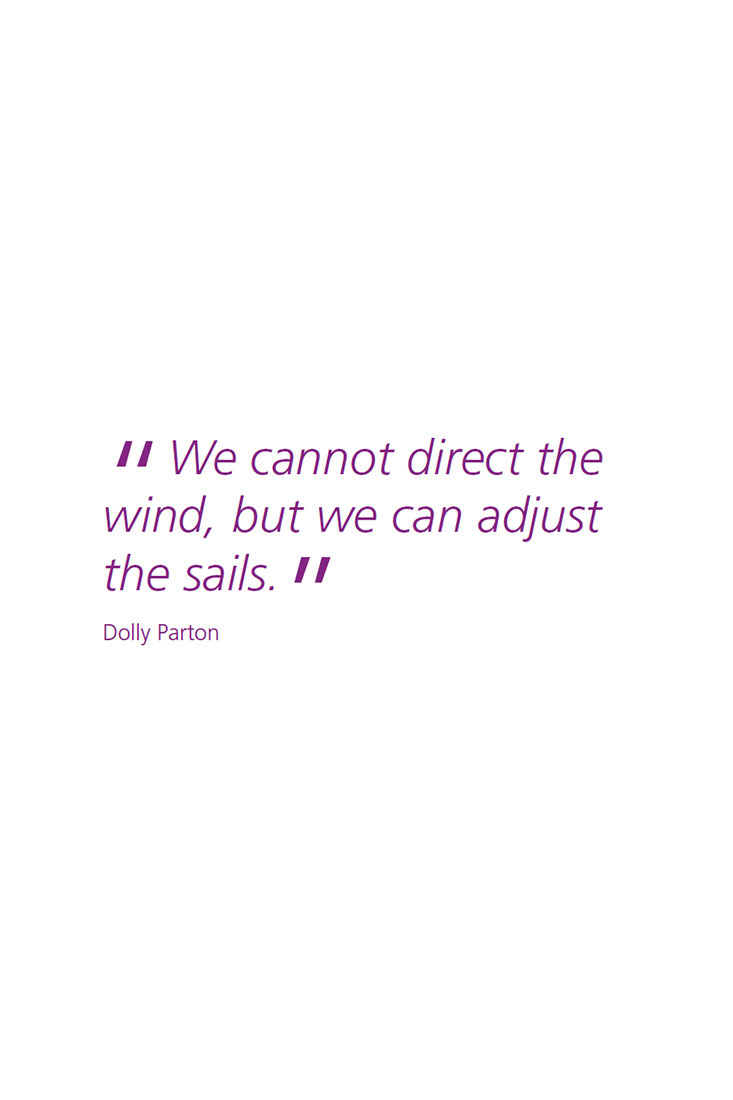
Chapter
What Is Feng Shui?
When people talk about feng shui they often think that it just means moving their furniture around. If only it were that simple!
Feng shui is about organizing space and time in relation to individuals and groups of people to create balance and harmony. The rules that it uses are very ancient ones, based on Taoist philosophy.
This way of looking at the world is also at the root of traditional acupuncture. It takes into account the seasons, and the cycles of the earth Sun and Moon, day and night. Its also about Yin and Yang the balance of elements as explained in the I Ching, the 5,000 year old Chinese book of wisdom and the duality of life.
On the face of it, we century humans are living very differently from our ancestors. (However, for duality read binary system, which is what all our computer technology is based around and perhaps we are not so different after all.)
Originally, feng shui was the preserve of emperors in ancient China. It was considered so powerful that it was customary for the feng shui master to be restricted to the emperors palace and grounds.
3,000 thousand years ago, only men were feng shui masters, and the art was passed down from father to son. Fortunately, things have moved on and nowadays women, as well as men, practice this fascinating art.
Businesses in both the East and West use feng shui to increase their profits as well as improving working conditions for their staff and, most important of all, attracting customers.
DO PEOPLE REALLY GET A NEW LIFE BY MOVING THEIR FURNITURE AROUND?
Have you ever considered that every supposedly inanimate object in your home, or your office, is a symbol that has its own psychological significance for you? It also relates to one of types of energy, as well as of the basic elements, of Chinese medicine?
When you move your furniture around, you are changing the inter- relationship of different symbols, and the way that they relate to you as well as to each other. It is about much more than just the layout of your living room!
There are many people in the East, especially in Japan, who notice space first and the objects in the space second. A classic example of this is the following illustration.



